OUR FIRST RV AND WHY WE CHOSE IT
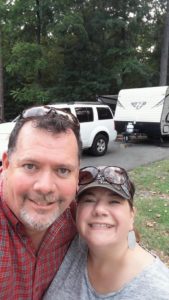
I have a confession to make! My husband approached me last winter (winter 2016) about buying an RV camper and I thought he had flipped his lid! I KNOW, I KNOW…I love it SO MUCH now that it’s hard to imagine why I didn’t want one! So, here’s our story and also what to consider when buying an RV Camper.
I knew the hubs wanted an RV for quite some time. In fact, we had a pop-up camper when the kids were little, but we grew tired of cranking it up and down as well as CONSTANT repairs and upkeep on it. Sadly, we outgrew it and sold it. That one had WAY more cons than pros to me (see my Pros and Cons of Camper Ownership here!), but I’ll be fair and say it was SUPER OLD when we bought it. We did enjoy that old thing, though! Lots of fun memories!!!
THINGS TO CONSIDER WHEN BUYING AN RV
BUDGET…FIRST AND FOREMOST!
I would tend to think this is a no-brainer, but sometimes you just gotta state the obvious! When buying an RV, consider what you can afford to realistically either pay cash for or what you can pay off quickly. While it was a bonus for us to learn that you can write off the interest since it is sort of like a second residence, I really HATE having debt hanging over my head (have I said that before…yeah, I don’t like debt)! So you should not only consider how much down and how much per month but also HOW MUCH?! Along with upfront costs of purchasing the camper, here are some other things to consider when buying an RV:
- COSTS OF OUTFITTING YOUR VEHICLE TO TOW (Towing package and stabilization chains for my Nissan Pathfinder cost about $700, which CAN be rolled into your loan, depending on your credit of course.)
- MONTHLY INSURANCE COSTS (Ours costs about $40/mo. to insure)
- COSTS OF OUTFITTING THE CAMPER WITH NEEDED GEAR (I have NO IDEA how much we spent, but it was probably between $300-500…here’s a post for those recommendations).
- FUEL COSTS PER TRIP (My gas mileage went from roughly 20 mpg to 10 mpg when towing…OUCH!)
- CAMPSITE COSTS PER NIGHT (State parks are ALWAYS cheaper! We’ve paid anywhere from $20-50/night in various types of parks.)
- SUPPLY COSTS PER TRIP (Groceries, drinks, snacks, firewood, etc., this all depends on how long the trip is and how many people you bring with you, but for the two of us, we don’t usually spend more than $50 for a 3-4 day trip.)
- NEW YEAR MODEL (Glynn pointed out that if you pay attention to when next year’s model comes out, this is a PERFECT time to save money and buy this year’s model at a discounted price. We did this and saved THOUSANDS…LITERALLY!)
When buying an RV, the FIRST thing to think about is BUDGET. For our purposes, we decided to spend around $10,000…that was our bottom line. Outfitting the camper took us several weeks, but this helped spread out the costs. We bought the camper in late May and didn’t use it until late June, so we had about 4 weeks to get our supplies.
TOW CAPACITY/CAMPER WEIGHT
Hopefully, you already have a vehicle that can tow. Heck, most anything can tow at least SOMETHING! (I’ve even seen motorcycles towing campers!) You’ll need to do the research to find out what your vehicle can tow when you’re buying an RV, but there’s usually a sticker somewhere on your car stating the tow weight (mine was inside the driver side door). The camper dealer can also tell you if you’re buying from a dealership, but I’ve heard you can’t always trust them. You need to be aware of bumper weight vs. towing capacity. Bumper weight is how much weight your bumper can hold, so be careful not to exceed that weight limit. Be conservative with the weight! It will be heavier when you load it. Other things to consider when buying an RV include, but are not limited to:
- 5th WHEEL TOWING (5th wheel campers are usually considerably larger/heavier, more luxurious and more costly, but apparently tow MUCH easier).
- PULL BEHIND TOWING (Trailer campers can be lighter, but are notorious for swaying when being towed…it’s OBNOXIOUS!)
- LOCAL TERRAIN (Arkansas is VERY hilly in places…we knew that would put a strain on our engine, which is why we went with a lighter camper. If you lived in Arizona, for instance, you’d want to consider that pulling weights too close to your car’s limit might cause an extra strain on your engine and cause it to overheat. Something to consider for sure!)
We knew that without getting a new car, my 2009 Pathfinder could only pull up to 6,000 lbs. of dry weight, so we wanted to keep the weight well under capacity. That pretty severely limited the size that we could get. Glynn wanted to shoot for half that weight just so we would be sure to not put too much pressure on the transmission over the river and through the woods, so 3,000 to 4,000 lbs. was our limit there.
FAMILY SIZE/CAMPER USAGE
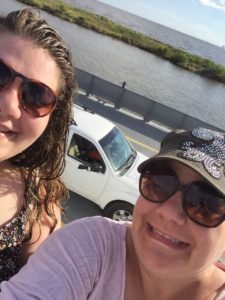
Abbey joined us in Gulf Shores
Again, I feel like this should be a no-brainer when you’re buying an RV, but as stated previously, you never know! How many people need to sleep in this camper? Do you want your little people to double bunk/share beds, or does everybody get their own bed? How will you be using the camper?
Boondocking (camping on non-official campgrounds…no water, sewer, or electric hookups), campgrounds, with or without tent camping, etc…what are your needs? If you don’t have children coming with you, maybe you can do with a smaller camper.
Maybe you want a larger, more luxurious one since you won’t have kids with you. If you do have kids, maybe you need double bunk beds for your tribe, maybe two beds total will do, or maybe you need to pack tents or hammocks for older children. Things about your family to consider when buying an RV:
- PRIVACY (Do you want a “master bedroom” with a door for privacy, or will do you care about that?)
- BEDS (Most campers are great about multi-use spaces…dining tables that fold into beds and chairs/couches that double as sleeping space.)
- BATHROOM (Do you absolutely have to have one, or are you ok with walking to the campsite bathhouse?)
- SHOWER (Same as above…I know an alarming amount of people that don’t use their showers at all in their camper. Seems like a waste to me!)
- DINING AREA (Do you really need a table/dining area? Most campers come with some sort of table, but most campsites have picnic tables too.)
- FOOD PREP SPACE (Is this a must? How much or how little can you get away with. When camping, I’m more of a Ravioli’s out of a can kind of girl, so this wasn’t crucial for me.)
- FOOD STORAGE (Do you need a 30 cubic foot fridge, or will a college icebox sort of fridge do? You can always add an ice chest.)
- STUFF STORAGE (How much junk will you bring with you…games, bikes, towels, clean and dirty laundry, groceries, shoes, etc. It adds up!)
- ACTIVITIES (Will you be watching TV? Do you want space inside the camper for rainy day activities such as board games, puzzles, or card games, or is napping what’s on your mind for those days?)
Our three kids are all adults…one of them is married. We figured we only NEEDED one bed for us, but the dining table folds down to make a full sized bed just in case we have a tag along, which HAS happened! Since we often camp within an hour of our home, we keep a hammock or two and a tent in the storage compartment in case one of them pops in to say hi. That way we have the choice to hold them hostage invite them to stay the night if they’d like.
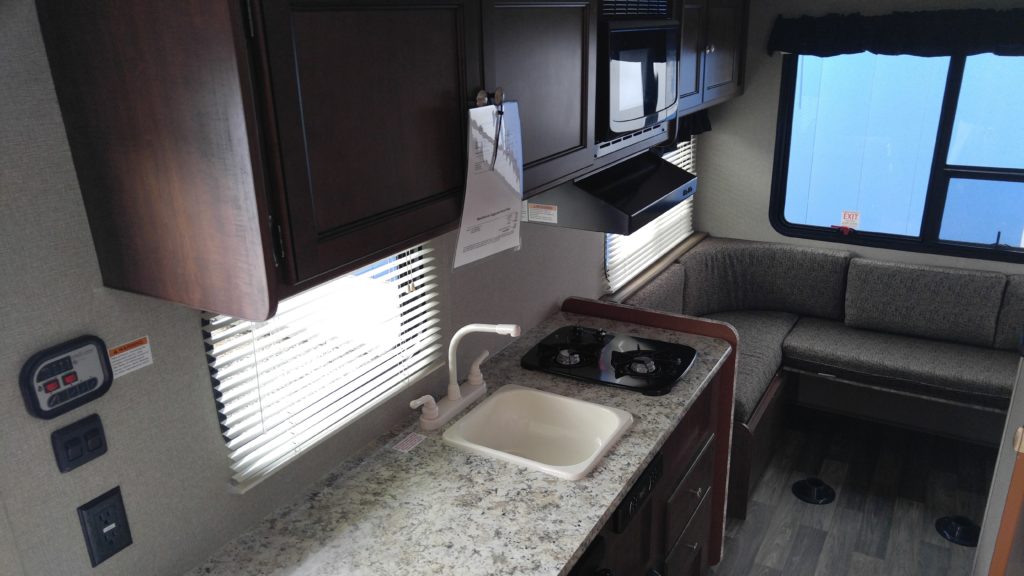
Kitchen & Dining in our camper
We chose our camper because it is inviting for one of them, but not all of them at once! 🙂 It has SOME food storage, but not a lot. It has a small fridge (like a college dorm sized one), a T I N Y food prep space, a two-burner stove, a microwave, a sink (albeit disappointingly small), bathroom with shower and enough storage for about 4 towels, and a dining room with storage enough for rainy day games. Our dining table is removable so we can use the dining space as a couch for watching TV. I also use the table for working on the blog when possible (if the internet is available). It’s PERFECT for two empty nesters! I’ve noticed newer campers tend to have better storage options both inside and out.
RESALE VALUE
I know you probably don’t want to think about selling your camper before you ever even buy it, but it is something to think about when buying an RV. Since I’m a Realtor in my real life, I tend to think about campers like I think about homes…the best way to not lose your britches when you sell (breeches for fancy people!) is to buy at the right price. You will not own this camper forever. The time to consider resale value is when you purchase it.
We bought a 2017 model right after the 2018’s came out. One goofball salesman at a boat/RV show quoted a price to us that he should not have quoted. Too bad for him, we held them to it! It was CONSIDERABLY less than they wanted to sell! The sticker price was $17,300, but because our generous friend at that boat show misquoted the price, we bought ours for $10,900. I think we could resell ours anytime in the near future and at least break even. Also, if you buy a 5th wheel, you might limit your buyer’s pool. Not as many people CAN tow a 5th wheel…just a thought.
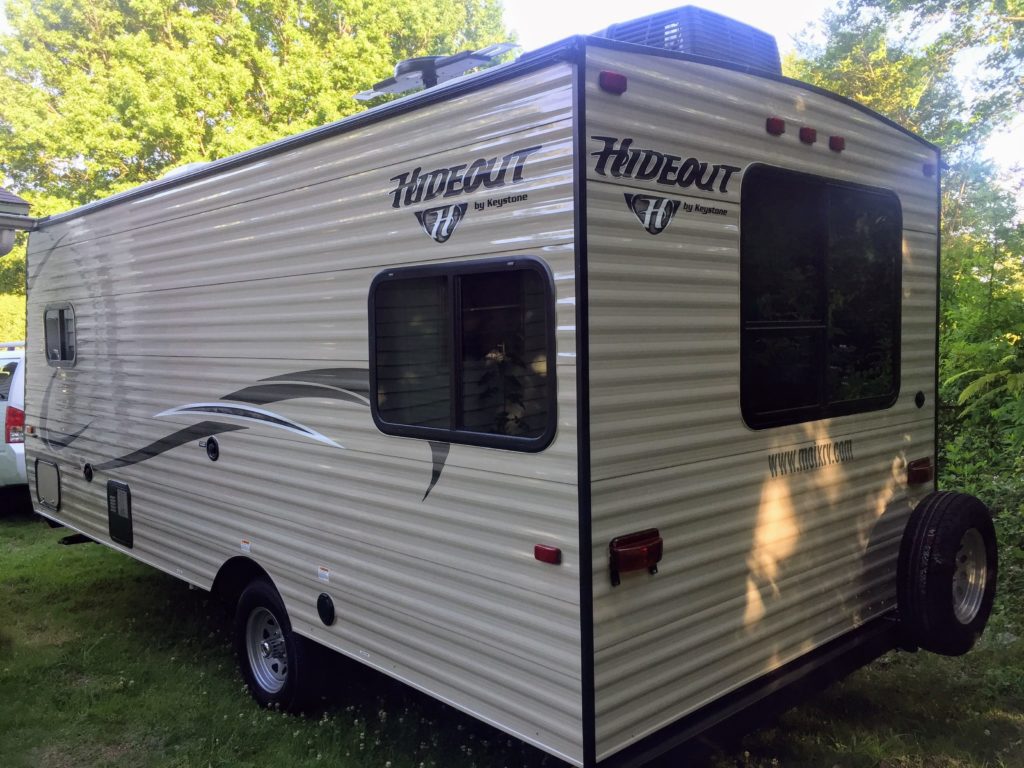 In the end, we went with a 2017 Keystone Hideout 177 LHS. It was light enough for our SUV, cheap enough that we could reasonably pay it off early, and had all of our essentials (a bed, toilet, shower, kitchen, and dining room/living room/office, we can camp unplugged if needed, and it has enough storage for clothes, food, and junk)! We L-O-V-E, love it! If you’d like to see what ours looks like (more or less), click here. It fits our needs EXACTLY!
In the end, we went with a 2017 Keystone Hideout 177 LHS. It was light enough for our SUV, cheap enough that we could reasonably pay it off early, and had all of our essentials (a bed, toilet, shower, kitchen, and dining room/living room/office, we can camp unplugged if needed, and it has enough storage for clothes, food, and junk)! We L-O-V-E, love it! If you’d like to see what ours looks like (more or less), click here. It fits our needs EXACTLY!
If you ARE getting a camper soon, or just bought one, be sure to check out my post about essential RV equipment you’ll need before your first camping trip!
…and finally, if you’re interested in beginning your own blog, feel free to check out my review of Create and Go’s Pro Blogger Bundle! It’s a great place to start if you’re interested in blogging!
So, what do you think? Did I miss anything? Feel free to leave any add-ins or omits in the comments!
Don’t forget to subscribe to our newsletter!

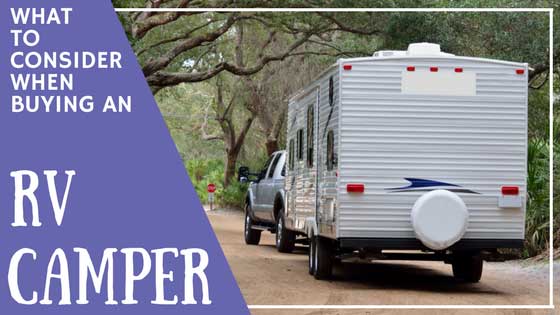
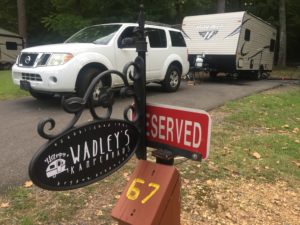
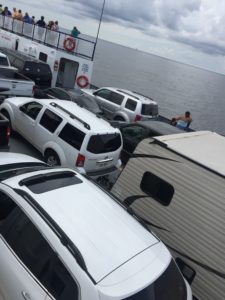
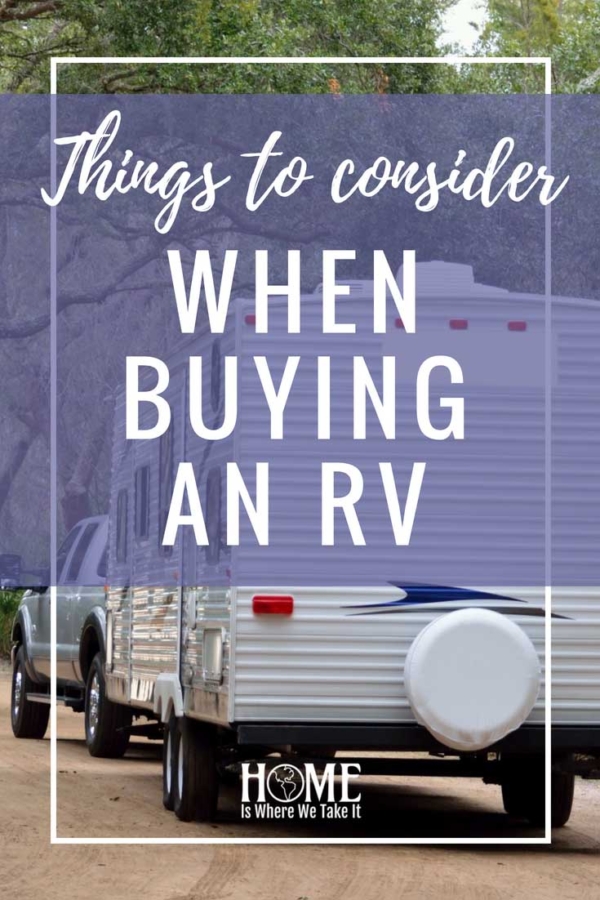
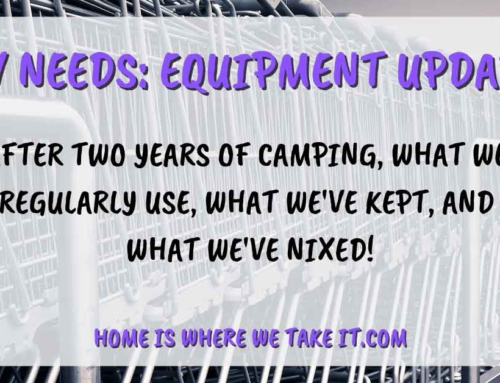
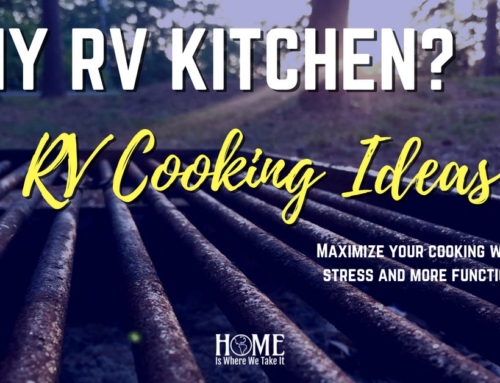
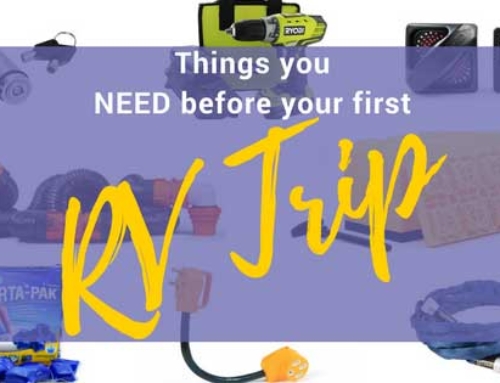
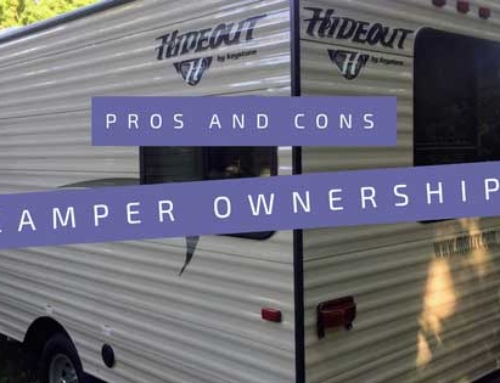
[…] Choosing the Right RV […]
My wife and I are thinking about buying an RV to take camping soon, so thanks for sharing this. I like your point about choosing a trailer that has a good towing capacity and doesn’t sway. I will be sure to check this so we know the RV is safe on the road.
Thanks! You just don’t know what you don’t know…then when you do know, it’s too late! We didn’t even know to think about this swaying until we were on the way home with it for the first time. I hope you get one soon and I hope you love it as much as we do!!!
[…] You wouldn’t think there’s so much to consider when shopping for an RV, but there definitely is! You can check out my other post about things to consider when buying an RV here. […]
[…] how do you know which one is the right one for you? I mean, you can do all the research on what to consider when buying RVs and all the different types of RVs, but at some point, you’ll have to bite the bullet and buy […]
[…] out my post What to Consider When Buying an RV if you’re thinking about […]